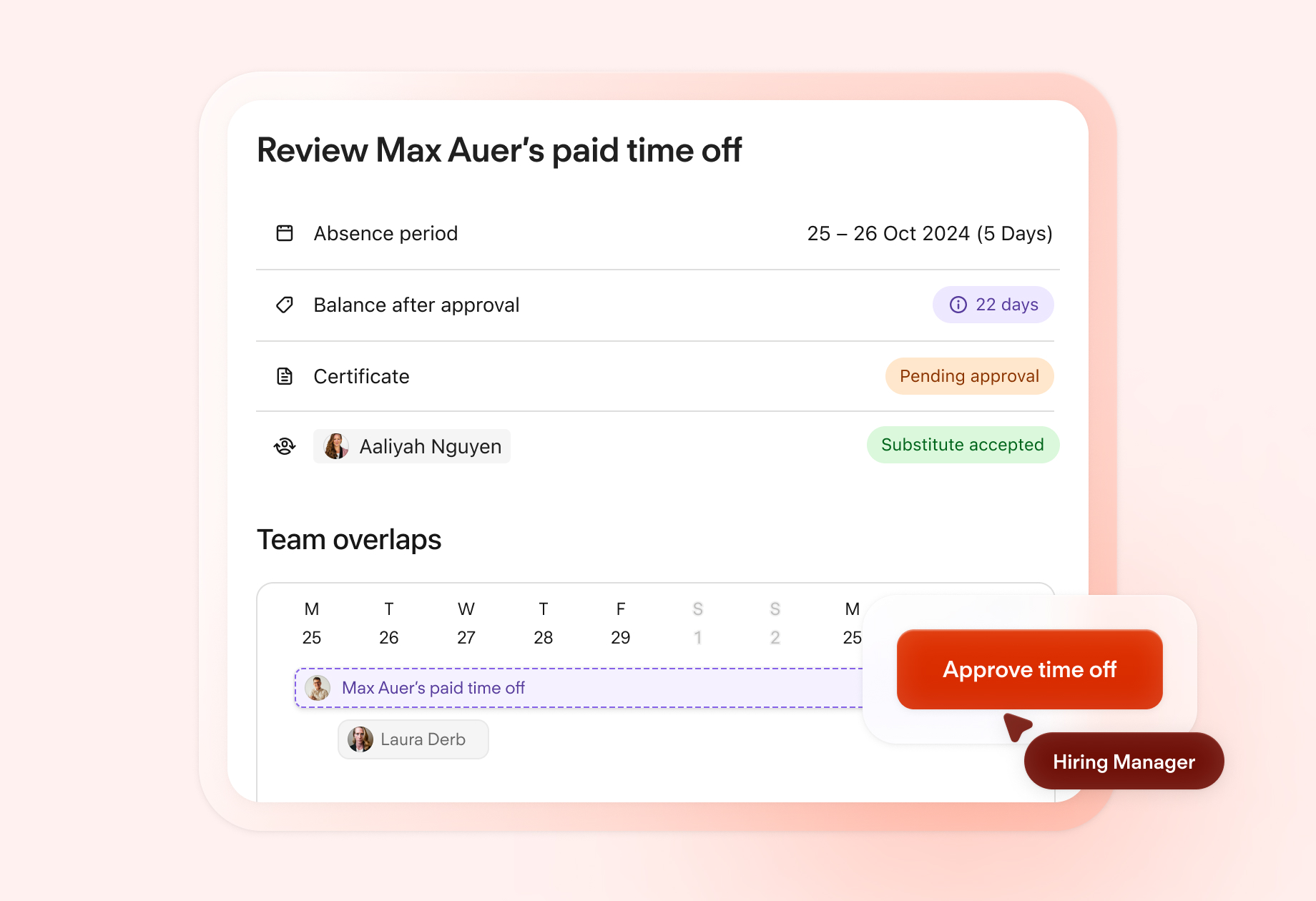What Questions Help Determine A Hire’s Cultural Fit?

In some ways, cultural fit is as important as whether an employee can do the job. At the same time, a cultural fit assessment may be the key to figuring that out. So, how do you go about assessing whether a potential candidate is the right cultural fit? In this article, we break it down for you.
It starts by making sure that you're asking the right cultural fit questions. You know, the kind of inquiries that truly get to the heart of how someone works, and how they collaborate with others. We’ll share some of those below, and why they matter. But first, we have something we want to share with you…
What Makes For A Cultural Fit?
A cultural fit for your company is somebody who embodies the same values that your company embodies. They are the kind of person who seamlessly fits in on day one, who excels at their role, and who leaves a good impression with colleagues, clients, and customers. In short, they are an ambassador for your organisation, for all of the right reasons.
But, how do you find that person? On a fundamental level, the answer is pretty clear: First, candidates need to have the right qualifications. Then, these qualifications need to be bolstered by what they value. They share a fairly dynamic relationship, and truly go hand in hand, in order to define the term ‘cultural fit.’
How Do You Determine Your Company’s Own Cultural Fit?
Before you can go and decide whether someone fits in or not, you need to have a distinct idea of what it means to be a ‘cultural fit’ at your company. It helps to start right from the top, by identifying and defining your company’s values. This way, you can put your culture into words so candidates can know what to expect.
Then, you need to live those values. We have put together a fairly in-depth post about corporate culture before, but it is worth repeating: your values are not simply posters that hang on the wall, they are deep, ingrained ways in which employees interact with one another and management interacts with employees.
Once you’ve done that, then we can start to think about candidates in our pipeline. Let’s start by investing some time in research your target group. Ask yourself:
What kind of talents do we want?
Are those talents looking for something in return?
How can our offering align with what they need?
This reveals itself in putting together job requirements, writing job postings, and generally putting together a great applicant sourcing and applicant tracking process. Once you have people who talk the talk, how will you ensure that they walk the walk?
What Is A Cultural Fit Assessment?
Determining cultural fit comes down to asking the right questions. A cultural fit assessment is a point in a semi-structured interview, whether it is identified as such or not, where you can ask questions to determine if a candidate’s values align with your company’s values. It is basically the way you determine whether someone can simply do the job, or whether they can excel at it, based on what your company values and how they would live those values.
As you might have guessed it, your list of questions for your culture fit assessment is crucial. For us to focus our thinking, let’s consider cultural fit questions in three unique buckets:
Standard Questions
Interactive Questions
Unconventional Questions
Let’s dive into each with the sections below…
Cultural Fit Questions: Standard Questions
Standard questions are the kind that you’ll find in just about any guide for applicants. They’re the standard ones, the cliched varieties, and are the ones candidates know the most about (so, they know how to answer them, sometimes flawlessly).
While they are useful for getting things going, and helping candidates feel comfortable (because they expect them), they aren’t super effective when it comes to cultural fit. That’s because there is little about them that is revealing, as a rehearsed response won’t tell you more than a candidate’s memorisation skills.
Standard questions may include:
Where do you see yourself in five years’ time?
Tell me three strengths and three weaknesses of yours
Cultural Fit Questions: Interactive Questions
Interactive questions are where we can get to the heart of the matter when it comes to cultural fit. These are the kind of questions that demand a more nuanced response and are more like springboards for a larger discussion rather than a simple call-and-response rhythm.
Think of questions like:
What do you appreciate most about working in a team?
Do you dislike any elements of teamwork?
What drives you in your day-to-day work?
Is there anything you like about your current colleagues?
It is also important to keep the conversation flowing, as this allows you to learn more about an applicant and assess them better. Basically, what we are doing here is using small talk to gain insights into a candidate’s personality. It relaxes the atmosphere, is more colloquial, and allows a candidate to be themselves rather than the rehearsed version of themselves.
Ultimately, these kinds of questions will determine if a candidate’s personality is broadly aligned with the company’s values and vision. It will tell you who they really are, what they care about, and even where they see areas of improvement in themselves. After all, even if a candidate does not immediately represent a value, the capacity to grow is a value unto itself.
Cultural Fit Questions: Unconventional Questions
Now, you’ll want to leave the best for last. These are a bit more unusual questions, the questions candidates never expect, and for that reason, they can be both incredibly effective and revealing. They’ll give you a better picture of them, as a person, while inviting them to open up a bit more, too.
Here are a handful of examples — but feel free to get creative with them:
What do your friends not like about you?
Where on your resume have you lied or left something out on purpose?
When was the last time you messed up on a project or task?
The idea here is not to call a candidate out, but to allow them to express a more humble side of themselves. Candidate interview situations are often too much about what a candidate has accomplished and how great they are — it is important to know that they have a human side, as well.
How Do You Make Cultural Fit Consistent?
Don’t forget: it is absolutely essential that you try and ask the same questions. This is to help ensure comparability and consistency, even if the discussion ends up differing. If it helps, create a list tailored to your company ahead of application rounds to give some structure to interviews.
Later on, you can rely on this list as excellent guidance for your decisions about candidates’ cultural fit. It’s superior to gut feelings and helps avoid costly mistakes when hiring new employees.
No candidate needs to be perfect, and each will have their own weaknesses. But, there should be as much overlap as possible in terms of motivation for teamwork, shared values and principles, in addition to candidates having the required qualifications. This is essential if both company and candidate are to enjoy a successful, long-term relationship.

